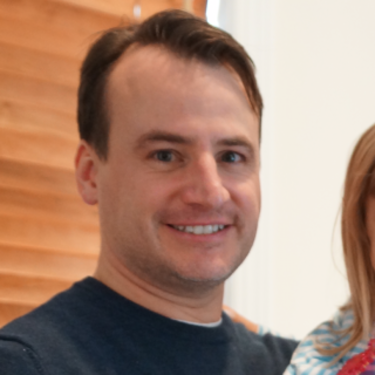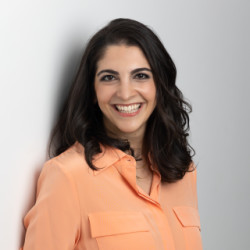
Early in my first year of medical school, I was surprised at one of the assignments as part of "Introduction to Clinical Medicine": a vocabulary list, with a related quiz to be given on the words. Medical school is of course known for requiring lots of memorization, but I didn't initially appreciate how much of what we would be asked to memorize would be new words. In some ways, this is the essence of medical education: learning a new vocabulary that helps us communicate in a common language. Unfortunately, this language primarily helps doctors communicate with one another; something is often, if not always, lost when we use the same words to talk to our patients.
In a previous essay on doctor-patient communication, I wrote about listening and how most students learn to sacrifice the basics of good interpersonal communication — undivided attention, nonjudgmental kindness, willingness to hear out the person regardless of what is being said — in favor of a more efficacious method of data collecting. This is not, I believe, the desire of any medical student, but happens because the system teaches toward this end. Good listening is taught early as a foundation, but most doctors spend more time at the other "end" of communication: talking.
The learning of a new vocabulary is the first step in the attempt to teach medical students and residents how to talk to patients. It is a core feature of a physician's job to educate his or her patients (doctor comes from docere, meaning to teach). This is a noble goal and necessary for good care. Handing a patient a prescription for metformin or recommending a surgical breast biopsy or diagnosing depression without concomitant teaching is useless and in most cases not ethical. Informed consent nearly always involves talking to the patient – explaining the what, why, and how of the diagnosis and treatment plan. Since much of medicine involves addressing behavior change, this teaching often turns into lecturing.
Doctors develop spiels. I've seen this most with experienced attendings who have had the most time to iron out the exact wording they use, but I've certainly begun to develop them myself; it seems that residency is in many ways just an exercise in collecting little speeches to give to patients whenever they say a trigger word. It feels good to dole out these standardized explanations – I feel well-spoken and articulate, and it makes the medical students and attending physicians listening to me think I'm smart for using precise words. We understand one another because we are operating within a shared language and a shared background, to some degree, in the form of higher education.
But I wonder about what patients hear. I work with psychiatric patients, and as a resident I work primarily with patients who have been acutely hospitalized for their psychiatric illness. They lack the vocabulary we use, and further might interpret many of our clinical words wildly differently than intended. At best, the words are meaningless jargon; at worst, they are misinterpreted to the end of causing harm, whether by confusion or misapplication. On top of this, patients hospitalized for any reason are sick, scared, stressed, probably overwhelmed and likely having a very bad day. To take it a step further, the patients I see are often detached from reality in the form of psychosis, or are intoxicated with or withdrawing from one thing or another, or are so depressed or anxious they aren't functioning, or are feeling so bad for any number of reasons that they are at high risk for hurting themselves or someone else. Taken together, these create many barriers between myself and the patient – barriers that words may or may not permeate well.
Given this situation, then, it makes sense that our ways of talking – our ways of lecturing patients, our methods of describing their symptoms or conditions, our explanatory spiels – would often be wrong. In psychiatry, much of our diagnosis is made by criteria, which places even more weight on the particular words being used – words that might be unfamiliar to patients. I remember one patient whom a medical student and I were interviewing, and as we asked about each criteria of depression – e.g., "Have you lost interest in things lately?" — she became increasingly overwhelmed, and our words felt increasingly awkward. It felt so artificial to try to box her feelings into DSM categories, and our fancy words like anhedonia didn't jive with her lived experience. And I’m sure that if it felt that way to me, it felt even more so to her.
So how do we avoid awkward or stilted language? How do we stay away from jargon, from vocabulary words, from giving a spiel because it's easy to do? I think much of the answer begins not with talking, but again with listening. It takes real courage and skill to develop a narrative along with the patient – not one that I am making up, but one that the patient is mostly driving (or perhaps we are co-creating). Intent listening creates space for the patient's own words and descriptions to come out, and particularly their honest questions. And then when we answer – when we do talk, as we must do – we can do so with a better foundation of where the patient is, how they think and feel, what they are concerned about. Our conversation can instead become a fluid entity, shaping itself around the patient as they are, not a cookie cutter spiel. This is much more difficult and does not feel as natural, but providing good medicine is ultimately not about clinician comfort. It is about making a connection with another person and guiding them towards healing and recovery, and that can only happen within the bounds of our conversations. Since words are the primary vessel we have to communicate all of this, let's try to get them right.
Brent Schnipke, MD is a writer based in Dayton, OH. He received his MD from Wright State University in 2018 and is a first-year Psychiatry resident at Wright State. His professional interests include writing, medical humanities, and medical education. He is also a 2018–2019 Doximity Author.







